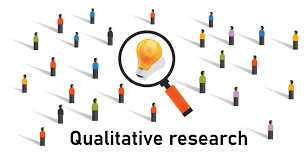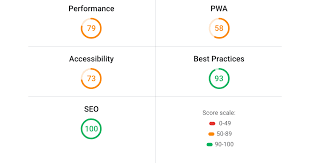The Importance of Qualitative Data Collection in Research
Qualitative data collection is a crucial aspect of research that involves gathering non-numerical information to gain insights into people’s thoughts, feelings, behaviours, and experiences. Unlike quantitative data, which focuses on numerical data and statistical analysis, qualitative data provides a deeper understanding of the complexities and nuances of human behaviour.
Key Methods of Qualitative Data Collection:
There are various methods used to collect qualitative data, including:
- Interviews: Conducting one-on-one or group interviews to gather detailed information from participants.
- Focus Groups: Bringing together a small group of individuals to discuss specific topics or issues.
- Observations: Directly observing and recording behaviours and interactions in natural settings.
- Surveys: Using open-ended questions to allow participants to express their opinions and experiences freely.
The Benefits of Qualitative Data Collection:
In-depth Insights: Qualitative data collection allows researchers to delve deeply into the perspectives and experiences of participants, offering rich insights that quantitative data alone cannot provide.
Contextual Understanding: By capturing the context in which behaviours and attitudes occur, qualitative data helps researchers understand the underlying reasons behind certain phenomena.
Flexibility: Qualitative research methods are flexible and adaptive, allowing researchers to explore unexpected findings and adjust their approach accordingly.
Challenges of Qualitative Data Collection:
Subjectivity: The interpretation of qualitative data can be subjective, as researchers may bring their biases or preconceptions into the analysis process.
Time-Consuming: Collecting and analysing qualitative data can be time-consuming due to the need for detailed exploration and interpretation of responses.
Small Sample Sizes: Qualitative research often involves smaller sample sizes compared to quantitative studies, which may limit the generalisability of findings.
In Conclusion
In conclusion, qualitative data collection plays a vital role in research by providing a deeper understanding of human experiences and behaviours. By employing diverse methods such as interviews, focus groups, observations, and surveys, researchers can uncover valuable insights that enhance the overall quality of their studies.
Eight Essential Tips for Effective Qualitative Data Collection
- Clearly define your research objectives and questions.
- Select appropriate data collection methods such as interviews, focus groups, or observations.
- Ensure the privacy and confidentiality of participants.
- Consider using multiple sources of data to enhance the validity of findings.
- Maintain detailed records throughout the data collection process.
- Conduct pilot testing to refine your data collection instruments.
- Be mindful of potential biases and take steps to minimize them.
- Regularly review and reflect on your data collection process to make necessary adjustments.
Clearly define your research objectives and questions.
To ensure effective qualitative data collection, it is essential to clearly define your research objectives and questions. By establishing clear goals and formulating specific research questions, you can focus your data collection efforts on gathering relevant and meaningful information. This clarity not only guides the selection of appropriate data collection methods but also helps in interpreting the collected data accurately to address your research objectives. Clear definition of research objectives and questions lays a solid foundation for a structured and purposeful qualitative research process.
Select appropriate data collection methods such as interviews, focus groups, or observations.
When engaging in qualitative data collection, it is essential to carefully choose the most suitable data collection methods for the research objectives. Methods such as interviews, focus groups, and observations offer distinct advantages in gathering rich and detailed information from participants. Interviews allow for in-depth exploration of individual perspectives, while focus groups facilitate dynamic discussions among a small group of participants. Observations provide valuable insights into behaviours and interactions in real-world settings. By selecting appropriate data collection methods like interviews, focus groups, or observations, researchers can effectively capture diverse perspectives and experiences to enrich their qualitative research outcomes.
Ensure the privacy and confidentiality of participants.
It is essential to prioritise the privacy and confidentiality of participants when conducting qualitative data collection. Respecting the anonymity of individuals ensures that they feel comfortable sharing their thoughts and experiences openly, leading to more authentic and reliable data. By establishing clear guidelines on how participant information will be handled and stored securely, researchers can build trust with participants and uphold ethical standards in their research practices. Protecting the privacy of participants not only safeguards their rights but also reinforces the integrity of the research process as a whole.
Consider using multiple sources of data to enhance the validity of findings.
To enhance the validity of findings in qualitative data collection, it is advisable to consider using multiple sources of data. By triangulating data from various sources such as interviews, observations, and surveys, researchers can corroborate and validate their findings more effectively. This approach not only strengthens the credibility of the research but also provides a comprehensive understanding of the phenomena being studied by capturing different perspectives and insights. Utilising multiple sources of data adds depth and richness to the analysis, enabling researchers to draw robust conclusions based on a well-rounded evidence base.
Maintain detailed records throughout the data collection process.
It is essential to maintain detailed records throughout the qualitative data collection process to ensure accuracy and transparency in research. Keeping thorough documentation of methods, observations, participant responses, and any unexpected findings allows researchers to track their progress effectively and maintain the integrity of the data. Detailed records also facilitate the replication of the study and aid in the analysis and interpretation of collected information. By documenting each step meticulously, researchers can enhance the credibility and reliability of their research findings.
Conduct pilot testing to refine your data collection instruments.
Conducting pilot testing is a crucial step in qualitative data collection to refine and improve the effectiveness of your data collection instruments. By testing your methods on a small sample of participants before the actual study, you can identify any potential issues, ambiguities, or inconsistencies in your instruments. This process allows you to make necessary adjustments, clarify instructions, and ensure that your data collection tools are clear and relevant to gather high-quality data during the main research phase. Pilot testing helps researchers enhance the validity and reliability of their data collection procedures, ultimately leading to more robust and meaningful research outcomes.
Be mindful of potential biases and take steps to minimize them.
When engaging in qualitative data collection, it is essential to be mindful of potential biases that may influence the research process and outcomes. Researchers should acknowledge their own biases and take proactive steps to minimise their impact on data collection and analysis. By remaining aware of personal assumptions, preconceptions, and perspectives, researchers can enhance the credibility and validity of their findings. Strategies such as reflexivity, peer debriefing, and triangulation can help mitigate biases and ensure that the research results accurately reflect the participants’ experiences and viewpoints.
Regularly review and reflect on your data collection process to make necessary adjustments.
Regularly reviewing and reflecting on your data collection process is essential in qualitative research. By taking the time to assess the methods and strategies used to gather data, researchers can identify any potential issues or areas for improvement. This reflective practice allows for adjustments to be made promptly, ensuring that the data collected remains accurate, relevant, and aligned with the research objectives. Continuous review and reflection help researchers maintain the integrity of their study and enhance the overall quality of their findings.






